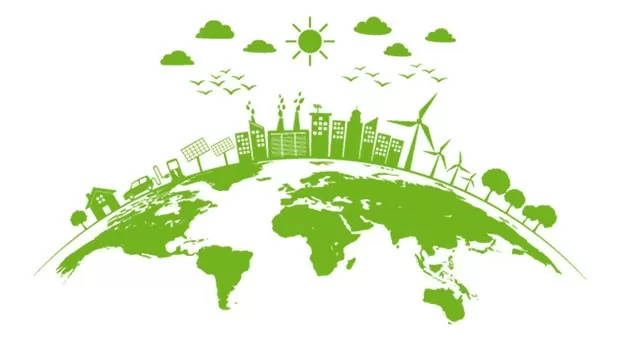
Sustainable consumption and production means the promotion of resource and energy efficiency, sustainable infrastructure, as well as ensuring access to basic services, decent and environmentally friendly jobs and a better quality of life for all. Its implementation contributes to the implementation of overall development plans, to the reduction of future economic, environmental and social costs, to the improvement of economic competitiveness and to the reduction of poverty.
Consumption and sustainable production aim to "do more and better with less", increasing the benefits in terms of well-being derived from economic activities, through the reduction of the use of resources, degradation and pollution in the entire production cycle , thus improving the quality of life. This involves different stakeholders, including businesses, consumers, policy makers, researchers, scientists, retailers, media and development cooperation agencies. For this, a systematic and cooperative approach is needed between subjects active in the supply chains, from the producer to the consumer. This also requires engaging consumers in consumer awareness and sustainable lifestyles initiatives, providing them with adequate information on standards and labels, and involving them, among other things, in sustainable public procurement.
12.1 Implement the Ten-Year Framework of Programs for Sustainable Consumption and Production, involving all countries, with developed countries at the helm, but also taking into account the development and capacities of developing countries
12.2 By 2030, achieve sustainable management and efficient use of natural resources
12.3 By 2030, halve global food waste per capita at the retail and consumer level and reduce food losses across production and supply chains, including post-harvest losses
12.4 By 2020, achieve eco-friendly management of chemicals and all wastes throughout their life cycle, in accordance with agreed international frameworks, and significantly reduce their release into air, water and soil to minimize their negative impact on human health and the environment
12.5 By 2030, substantially reduce waste generation through prevention, reduction, recycling and reuse
12.6 Encourage businesses, especially large multinational companies, to adopt sustainable practices and integrate sustainability information into their annual reports
12.7 Promote sustainable public procurement practices, in accordance with national policies and priorities
12.8 By 2030, ensure that all people, everywhere in the world, have the relevant information and the right awareness of sustainable development and a lifestyle in harmony with nature
12.a Support developing countries in strengthening their scientific and technological capacities, to achieve more sustainable consumption and production patterns
12.b Develop and implement tools to monitor the impacts of sustainable development for sustainable tourism, which creates jobs and promotes local culture and products
12.c Rationalize inefficient fossil fuel subsidies that encourage waste by eliminating market distortions in accordance with national circumstances, including by restructuring taxation systems and phasing out those harmful subsidies, if any, to reflect their environmental impact , taking into account the specific needs and conditions of developing countries and minimizing the possible negative effects on their development, so as to protect the poor and the most affected communities
Ercole Palmeri: Innovation addicted
[ultimate_post_list id=”16641″]
Google DeepMind is introducing an improved version of its artificial intelligence model. The new improved model provides not only…
Laravel, famous for its elegant syntax and powerful features, also provides a solid foundation for modular architecture. There…
Cisco and Splunk are helping customers accelerate their journey to the Security Operations Center (SOC) of the future with…
Ransomware has dominated the news for the last two years. Most people are well aware that attacks…
An ophthalmoplasty operation using the Apple Vision Pro commercial viewer was performed at the Catania Polyclinic…
Developing fine motor skills through coloring prepares children for more complex skills like writing. To color…
The naval sector is a true global economic power, which has navigated towards a 150 billion market...
Last Monday, the Financial Times announced a deal with OpenAI. FT licenses its world-class journalism…